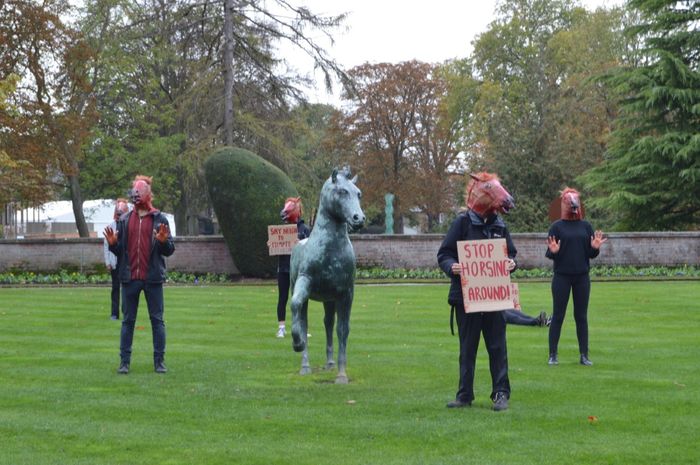Trinity Hall reveals ‘ambitious’ divestment plan
Trinity Hall will divest from all direct investments in fossil fuels and other ‘extractive industries’ within the next six months

Trinity Hall released plans today (12/11) announcing their intent to divest from direct investments in fossil fuels within the next six months, and to significantly reduce indirect holdings by 2025.
The partial divestment, which will see the College divest from all "from companies whose primary activity is in fossil fuel exploration or extraction", will occur under the College's newly-revised investment policy.
The policy, overseen by the new bursar, Tim Harvey-Samuel, "prohibits direct investments" with industries "deemed to be at odds with the College’s...charitable mission." Over the next five years, the College will "seek to work with those managers with whom it invests in pooled funds so as to substantially reduce its indirect holdings."
Simon Guest, Chair of Finance Committee (Investments), has said that the College had a "very successful" policy, but confessed that it had, until now, "not been explicit about our underlying investment philosophy." He stated in a press release seen by Varsity that he was "pleased" with the "clear position" on the matter, especially as "environmental and social matters are becoming increasingly important in investment decisions."
The College was previously ranked 28th of the 32 colleges by Extinction Rebellion for its stance on divestment, which measures the amount of money that colleges have invested in fossil fuels, arms, intensive animal farming and biodiversity destruction, as well as monitoring the progress of divestment campaigns across the colleges.
Trinity Hall is the third College to announce divestment plans this academic year, with both Christ’s and Lucy Cavendish committing to full and partial divestment respectively. The University has also committed itself to full divestment by 2030.
However, following the University's announced plans for divestment, Cambridge Zero Carbon called for “the 2030 commitment to be brought forward.”
Clare Hall and Queen’s at present are the only two colleges to be fully divested, while Newnham, Robinson, St John’s, Fitzwilliam, Selwyn, Emmanuel, Downing, Peterhouse and Jesus are all partially divested.
 News / Colleges charge different rents for the same Castle Street accommodation2 March 2026
News / Colleges charge different rents for the same Castle Street accommodation2 March 2026 News / News in Brief: waterworks, wine woes, and workplace wins 1 March 2026
News / News in Brief: waterworks, wine woes, and workplace wins 1 March 2026 News / Climate activists protest for ‘ethical careers policy’1 March 2026
News / Climate activists protest for ‘ethical careers policy’1 March 2026 News / Angela Merkel among Cambridge honorary degree nominees27 February 2026
News / Angela Merkel among Cambridge honorary degree nominees27 February 2026 News / Private school teacher who lied about Cambridge degree barred from teaching27 February 2026
News / Private school teacher who lied about Cambridge degree barred from teaching27 February 2026










